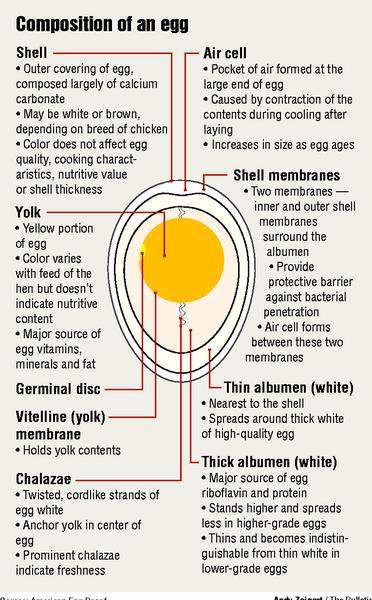Fact or fiction: You don’t really need to refrigerate eggs
Published 5:00 am Thursday, August 3, 2006

- Fact or fiction: You don't really need to refrigerate eggs
Fiction. Unless you’re big on salmonella or spoiled eggs, keep your eggs in the fridge.
According to the U.S. Department of Agriculture, eggs are perishable just like raw meat, poultry and fish. In many countries around the world, eggs are not refrigerated prior to being sold, and many consumers continue to store eggs at room temperature at home.
But according the USDA, once an egg has been refrigerated, it should always be kept that way. A cold egg left out at room temperature can sweat, facilitating the growth of bacteria. And since federal regulations require eggs to be transported and stored at temperatures of 45 degree or below at all times, store-bought eggs in this country are relegated to a life inside the Frigidaire.
All the precautions are aimed at reducing exposure to salmonella, a bacteria that has adapted itself to survive in the reproductive tract of the hen. According to the American Egg Board, only one out of every 20,000 eggs will contain the bacteria, so the likelihood you would be exposed to a contaminated egg is very small. If you’re an average consumer – eating about 240 eggs a year – you might encounter a contaminated egg once every 84 years.
If you are infected with the salmonella bacteria, you’ll generally become ill within six to 72 hours after eating, experiencing symptoms such as abdominal cramps, diarrhea, nausea, vomiting, chills, fever and headache.
The symptoms usually last only a day or two in healthy individuals but can lead to serious complications in people with health problems, the very young, senior citizens and pregnant women.
The USDA says you should never purchase cracked eggs, as bacteria can enter through the cracks. If eggs crack on the way home from the store, break them into a clean container. Cover tightly, keep refrigerated and use them within two days. Eggs that crack while you are boiling them are safe to eat.
The egg shell is a natural defense against bacteria, but it’s not foolproof. Even eggs whose shell is intact can be contaminated. Government regulations require that eggs be washed with a special detergent and sanitized. Then the original protective shell coating is replaced by a thin spray coating of a tasteless, odorless, harmless natural mineral oil.
Most eggs reach stores only a few days after being laid. Egg cartons with the USDA shield on them must display the pack date, the day the eggs were washed, graded and placed in the carton. The number is a three-digit code representing the day of the year, with January 1 as 001 and December 31 as 365 (or 366).
Eggs also have a sell-by date but will remain perfectly safe to use for three to five weeks after you purchase them if they remain refrigerated. Despite the handy egg compartments in your refrigerator, experts says you should store eggs in their cartons on the middle or lower inside shelf, not on the door.
If an egg containing salmonella has been kept refrigerated and someone who uses good hygiene practices serves it to you immediately after proper cooking, the egg is safe to eat.
Hard-boiled eggs actually pose more of a risk with improper storage than raw eggs. When eggs are boiled, the protective coating is washed away, leaving bare the pores in the shell for bacteria to enter. Hard-boiled eggs should be refrigerated within two hours of cooking and used within a week.
– Markian Hawryluk






